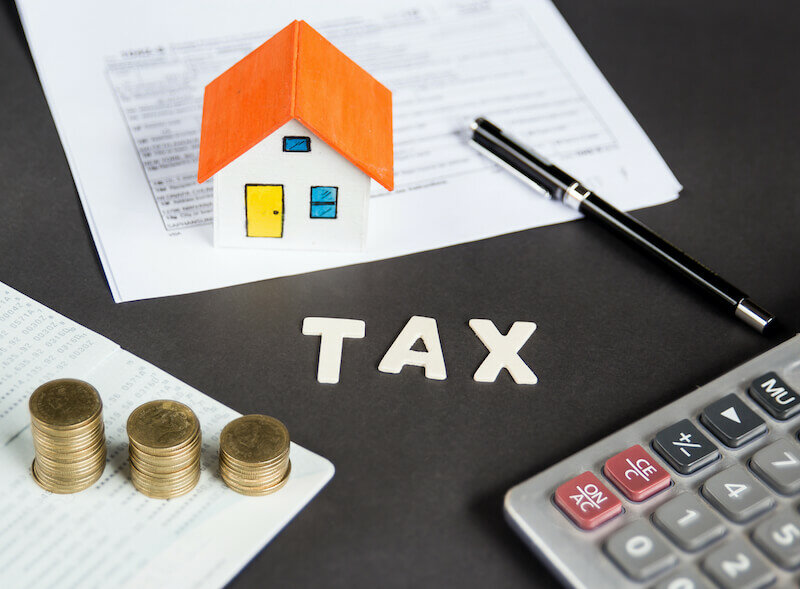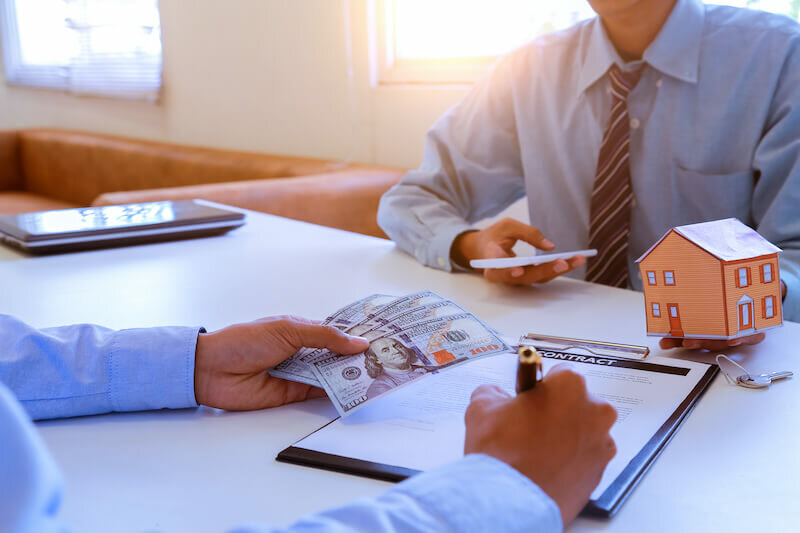There are so many things to remember when it comes to selling a house. Besides figuring out how you’re going to sell your home and handle repairs, you will also need to keep in mind extra expenses. Because those will affect the final amount you will get to keep from the sale of your property. If you work with a realtor, you will need to deduct 5-6% to pay their commission and pay for any home repairs or renovations. Besides that, you also may need to pay taxes upon the sale of your Wisconsin home. Taxes can be confusing. So we will help answer all your questions about what taxes are owed when you sell in Wisconsin, how taxes are calculated, and how to minimize taxes below. That way, you’re financially prepared and not caught off guard by this extra expense.
Selling your house and the taxes that come with it

Taxes When Selling a House in Wisconsin
The big question to answer is; do you have to pay taxes when you sell your house? And the short answer is yes. But it does depend on a couple of factors, which will be discussed further below. First, though, let’s find out what taxes you may have to pay in Wisconsin when you sell your house.
There are two types of taxes on real estate in Wisconsin; you should be aware of paying property taxes and capital gains taxes. Let’s look at each of these taxes when selling a house in Wisconsin and see how they would apply to you.
Types of Taxes:
Property Taxes
You’re probably familiar with this tax since you’ve been paying it while owning your property.
Property taxes are one tax that you won’t be able to get out of paying. Although you wouldn’t pay any additional property taxes upon the sale of your home, you will be responsible for paying taxes until you officially sell. You will need to keep this in mind if your closing date gets postponed because you are still responsible for paying property taxes up until you legally sell your Wisconsin house.
Capital Gains Tax
Even though most people are exempt from owing capital gains taxes, you should still be aware of them if you qualify to pay them.
What is Capital Gains Tax?
Capital gains can be defined as the profits you’ve made from the sale of a capital assist. A capital assist is defined as land, stocks, real estate, and personal items.
How Capital Gains Taxes are Calculated?
The first thing to figure out is your capital gains. How taxes are calculated looks something like this: Sell Price – Purchase Price = Capital Gain. Say you sold your home for $500,000 but purchased your home for $100,000; using the equation above, it would look like this $500,000 – $100,000 = a capital gain of $400,000. The IRS usually lets you exclude $250,000 of capital gains if you’re single or $500,000 of capital gains if you’re married or filing jointly. So using the same numbers again and if you filed single, the capital gains from the sale of your property, which was $400,000 – $250,000 (single exclusion) = $150,000, which would be subject to the tax.
What Could Affect Your Capital Gains Taxes In Wisconsin
Something to keep in mind is that a few factors could affect your exclusions of $250,000 or $500,000, causing you to pay taxes on the whole amount. If any of these apply to you, you will more than likely be paying taxes when you sell.
- The property wasn’t your primary residence.
- You owned the place for less than two years within five years of it being sold.
- You didn’t live in the home for two years in the last five years before selling it.
- You already claimed the exemption of $250,000 or $500,000 on another residence in the previous two years before selling this property.
- You bought the house through a like-kind exchange-where you swap one investment property for another in the past five years- also known as a 1031 exchange.
- You are liable to the expatriate tax.
Once you figure out if all or part of the profits you made from the sale of your home is taxable, you will need to determine what capital gains tax rate applies to you.
Capital gains have two categories that dictate how much you would pay on taxes when you sell.
- Short-Term Gains
- Long-Term Gains
Determine the capital gains taxes that you owe will depend on how long you have owned the asset (your property). To get more favorable tax rates, you need to have owned the home for more than a year for it to be a long-term gain. If you have owned your house for less than a year and sell, you would fall into the short-term gain category, taxed at a higher rate.
For long-term gains, the tax brackets are 0%, 15%, and 20%, and for short-term gains, the regular income tax rate applies.
On the bright side, though, capital gains don’t apply until you sell the capital asset (your house). In other words, while owning the home, if the value were to increase, you don’t pay capital gains until the day you sell.
Minimize Capital Gains Tax Obligations
There are three ways to minimize capital gains tax obligations when you sell:
- Live in the property for at least two years- the good news is the two years do not need to be consecutive. If you sell a home that you did not live in for at least two years, the capital gains can be subject to tax. If you were to sell in less than a year, it is much more expensive because it is considered a short-term gain and is taxed higher than the long-term gain.
- Find out if you would qualify for an exception. If you owe a capital gain from the sale of your property, you might be able to exclude some of it; this is if you sold the home because of work, health, or an “unforeseeable event,” as defined by the IRS. For more information, check IRS Publication 523.
- Keep any home improvement receipts. Besides what you’ve paid for the home, any renovations you have made over the years can be included as a deduction. If you did any expansions, remodels, landscaping, roofing, or finished out a basement, make sure to keep all the receipts. All of those items can decrease your capital gains taxes that you will owe. Either way, though, they kind of cancel each other out because you are still paying for something, whether it be on renovations or capital gains.
Do You Have to Pay Taxes When You Sell in Wisconsin?
Now that the different taxes have been explained, you should be able to figure out if you will owe taxes upon the sale of your home. The obvious one you will need to pay until the closing date is property taxes. You will be responsible for paying those until you sell the house. This way, the seller and buyer only pay the real estate taxes when owning the property. As far as if you will owe capital gains taxes will depend on you meeting the exclusions listed above.
Paying taxes when selling a house isn’t fun and will be another thing to reduce your profits. Besides taxes, something else to remember is that how you plan to sell your house will impact your earnings. If you hire a realtor to sell your Wisconsin home, you will also need to pay a 5-6% commission. And if you’re selling a property that requires a lot of repairs, those can be very expensive to complete. Selling a home has several hidden costs, fees, and taxes that can reduce your profits significantly.

Another Option
If you are planning to sell your property in Wisconsin to save on the cost of repairs and real estate commissions, consider selling to a local home buyer like Cream City Home Buyers. Cream City Home Buyers buy houses in as-is condition, saving you money on pricy home renovations and repairs. Also, they don’t charge realtor commissions and pay closing costs. Unlike conventional buyers, Cream City Home Buyers pay in cash and can close in a convenient time frame for you.
If you’re interested in a no-obligation cash offer or would like more information about how it works or who we are, please visit our website. Our team is also happy to discuss more details over the phone or answer any questions.
Though you may still be obligated to pay taxes when you sell your Wisconsin home, at least you can save time and money by selling to Cream City Home Buyers.
Besides buying homes subject to capital gains or that are behind on taxes, We also help people facing foreclosure, bankruptcy, fire damage, termite damage, code violations, and many more challenges you may be facing. Visit our website for more information and to see how we can help you sell your home.
